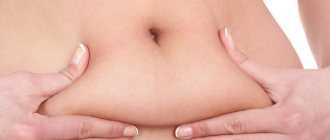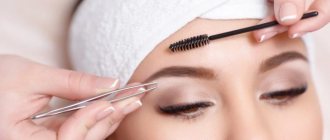What factors influence the fertilization process?
Fertility—that’s what the ability to fertilize is called—is affected by bad habits, the state of the body, including emotional, nutrition, and physical activity. By following these recommendations, you can improve your health, get pregnant quickly, and easily carry and give birth to a baby.
Bad habits
Ethyl alcohol and nicotine are toxic to a woman’s body. They also negatively affect the reproductive system. In addition to nicotine, tobacco smoke contains more than a hundred harmful substances that can lead to hormonal disorders. Hence - exhaustion of the ovaries and early menopause.
Smoking reduces immunity, which increases the incidence of inflammatory diseases. These problems lead to infertility. Even if follicle maturation and ovulation occur according to the usual schedule, pregnancy occurs without problems, there remains a risk of miscarriage, stillbirth, and chromosomal abnormalities.
Alcohol leads to the same disorders, and a small amount of drink is enough for their development. A woman has a certain supply of eggs laid down from birth. With each cycle, one of these cells matures and ovulation occurs. New eggs are not produced. This means that bad habits, even those that she gave up recently, can reduce the quality of reproductive cells.
To avoid the negative impact of bad habits on reproductive function, you need to give them up at least 3 months before conception. This also applies to the future dad.
It should be taken into account that so-called light cigarettes and soft drinks are also harmful: they contain other substances that poison the body.
Nutrition
The quality of nutrition directly affects the ability to fertilize:
- Firstly, vitamins, micro- and macroelements that come from food affect the functioning of the entire body, including the reproductive organs. With proper nutrition, the gonads receive enough “raw materials” for the synthesis of hormones. But a passion for flour products, sweets, high-carbohydrate foods, preservatives, and semi-finished products disrupts the ovulation process, thereby reducing the likelihood of getting pregnant quickly;
- Secondly, nutrition determines how many nutrients the fetus will receive in the future. If a woman consumes foods that are poor in vitamins and minerals, this will affect the formation of the baby’s organs and systems. And in the future this threatens with a delay in physical and neuropsychic development and deficit conditions.
If a woman has not paid attention to her diet, then now is the time to reconsider her diet. Vegetables, fruits, cereals, dairy products, and meat are recommended. Fats are also needed in moderation (vegetable oil, butter, fatty fish) - the functioning of the sex glands depends on them. A vegetarian woman should think through her diet especially carefully so that there is no deficiency of nutrients, if necessary, supplementing the deficiency with other products or vitamin-mineral complexes.
If you encounter difficulties when creating a menu, contact a nutritionist so that he can create a diet taking into account your taste preferences, financial capabilities and allergic history.
When nutrition fails to correct the metabolism, the level of vitamins and minerals remains low, the doctor will prescribe vitamins to quickly get pregnant.
Age
Fertility depends on age. The most favorable age is from 20 to 40 years. The menstrual cycle at this age is regular, ovulation occurs in all cycles, and the hormonal background is stable. There are almost no or few chronic diseases, so they do not affect reproductive functions. A woman can quickly become pregnant, carry to term and give birth.
Until the age of 20, the cycle is just establishing itself, hormonal imbalance is typical, so the likelihood of pregnancy may be low. After 40 years, hormonal changes begin, anovulatory cycles occur more and more often, so the likelihood of conception is questionable. Closer to menopause, spontaneous pregnancy is possible, but it can occur with complications.
Body condition
Chronic diseases can be the reason that you cannot get pregnant the first time. Particularly dangerous are endocrine problems (thyroid disease, diabetes mellitus, metabolic syndrome), cardiovascular (arrhythmias, congenital defects), nervous (massive formations of the brain, vascular disorders ) systems. It is also necessary to pay attention to the medications that a woman takes for chronic diseases - some of them can reduce the likelihood of conception or cause problems during pregnancy and childbirth.
The condition of the reproductive organs is of great importance. Cyclic disorders, inflammatory diseases, space-occupying lesions, endometriosis, polycystic ovary syndrome, fibroids, adhesive disease, previous surgeries, terminations of pregnancy and curettage negatively affect fertility and prevent conception. Some of them cause the absence of ovulation, some prevent conception or implantation of the fertilized egg.
If you have these problems, you need to consult a gynecologist, sometimes a fertility specialist, to decide on the possibility of conception at the moment. Specialists can prescribe drug treatment or surgical removal of formations so that in the future the woman can quickly become pregnant and give birth without problems.
Psychological condition
Stress and psycho-emotional stress worsen health. Prolonged emotional stress can cause hormonal imbalance, hence problems with conception and pregnancy. Therefore, a woman who is planning a pregnancy needs to get rid of stress factors. If necessary, the doctor may prescribe sedatives. In some cases, consultation with a psychotherapist is indicated.
Physical exercise
Excessive physical activity and passion for strength sports help increase testosterone. Therefore, with regular exercise, the chance of getting pregnant quickly decreases. Girls are recommended to be physically active, but within reasonable limits. Hiking, running, swimming, and gymnastics will keep the body in good shape, will not allow you to relax, and will also provide a positive attitude.
Optimal conditions to get pregnant quickly
The chances of getting pregnant quickly increase if you follow the conditions.
1) Choose the most favorable period for conception - the “fertile window”. At this time, conception is maximally possible. Involves calculating the day of ovulation. For this we use:
- calendar method - a girl marks the beginning of menstruation and its cessation in each cycle. In this way, you can calculate the average duration of the cycle, in the middle of which ovulation will occur: for example, on days 14 - 15 with a 28-day cycle. For the reliability of the method, it is important that the cycle be regular. If this condition is not met, it is impossible to guess on what day the egg is released;
- measuring basal temperature - an increase in values to 37.4 ° C approximately in the middle of the cycle indicates ovulation. It is important to measure the temperature correctly - in the morning, at the same time, without getting out of bed, with the same thermometer;
- An ovulation test performed at home will provide more accurate information about the day of ovulation. Test strips determine the level of luteinizing hormone (LH) in the urine, which rises on the “cherished” day;
- Ultrasound monitoring (folliculometry) means conducting an examination to determine the dominant follicle and the dynamics of its maturation. The examination begins a few days before expected ovulation. The doctor takes measurements to assess the degree of maturity of the egg.
Coitus should take place 3 days before or immediately after ovulation.
2) Plan pregnancy at the most appropriate age - from 20 to 40 years.
3) Make sure that there are good spermogram indicators: the analysis contains enough live, motile sperm without defects.
4) Make sure that during the period of pregnancy planning, future parents do not have significant health problems or signs of colds and infectious diseases.
No method gives a 100% guarantee, but knowing the listed nuances and following the recommendations, you can influence conception.
Pregnancy after the ovulation period
There are tests that determine ovulation, or a girl can independently track and control vaginal discharge during the period 12-16 days of the cycle.
- Cervical mucus helps sperm enter the canal and further fertilization.
- There will be no ovulation if there are any problems with hormones. It is necessary to check the condition of the genitals more often in the hospital.
- You can learn about the maturation of the dominant follicle by undergoing an ultrasound of the pelvic organs.
- If there is an adhesive process in the fallopian tubes, it will be impossible to get pregnant. This study is carried out only on the woman who is registered for infertility.
How often to have sex
One of the ways to get pregnant quickly is to create ideal conditions for the “meeting” of the egg and sperm, while the sex cells of both men and women should be as ready as possible for conception. For this purpose, plan the frequency of sexual intercourse.
The fact is that too frequent coitus reduces the concentration of sperm. Male reproductive cells mature within 8 to 12 weeks. If you have sex too often, sperm simply do not have time to accumulate and their concentration drops. Experts have proven that it will be effective to have sexual intercourse 2-3 times a week - these are optimal conditions for conception.
And with rare sexual contacts, you can miss the moment of ovulation. For example, sexual intercourse took place 4 days before ovulation, the next one - 2 days after ovulation. Considering that sperm retain the ability to fertilize for 3 days, and the egg remains viable for up to 2 days, conception is excluded in our example.
Why can't I get pregnant with a girl?
If the birth of a baby is important to a couple, there are several effective secrets.
- A girl can be conceived if fertilization occurs 2-3 days before ovulation.
- Perform an IVF procedure that is tailored to the child’s gender preference.
- Choose a missionary position during sex, on your stomach or side. So the chances of conceiving a girl are higher.
- There is a high chance of having a daughter if you conceive her on a full moon.[5]
These methods are rather conditional. They do not provide a 100% chance of having a girl.
Poses for conception
There is no need to specifically select a pose. The only thing that is required is that the ejaculate must enter the woman’s genital tract, where conception will occur. The position of the partners can be any.
The exception is women with anatomical features, which include a curved uterus. In this case, the missionary position is not suitable, since the cervix is curved anteriorly, which prevents sperm from reaching it. Therefore, positions will be effective when the man is behind and the woman is on her stomach or in a knee-elbow position. Then the man’s penis penetrates deeper, and the ejaculate exactly hits the cervix.
Another way to get pregnant quickly is the “birch tree” position after coitus. The woman lies on her back, raises her legs up and remains in this position for 15 - 30 minutes. Then the contents of the genital tract do not leak out, which will help the sperm to be guaranteed to start moving towards the egg.
The use of lubricants during sex should be avoided. After sexual intercourse, it is not recommended to get up, run to the shower or to the toilet. Even if it’s not a “birch tree,” you need to lie quietly for a while.
Experts recommend not focusing on poses and other nuances. Try to disconnect from these thoughts and enjoy the process.
The importance of consulting a doctor
A preliminary examination by a doctor before planning a pregnancy is a mandatory condition, the fulfillment of which will not only help you get pregnant quickly, but will also ensure healthy offspring:
- a woman should visit a gynecologist to determine her reproductive options and rule out conditions in which pregnancy will have to wait. The doctor will take smears and scrapings from the genital tract and send you for an ultrasound of the pelvic organs. If necessary, he may refer you for additional examination;
- the therapist will conduct an examination and assess the general condition of the body, and, if necessary, refer to other specialists;
- If you have a chronic pathology, you need to consult your doctor.
List of tests that a woman needs to undergo:
- General blood and urine analysis;
- Biochemical blood test and coagulogram;
- Test for HIV, viral hepatitis, syphilis;
- Testing for sexually transmitted infections.
A man should also see a doctor. He is examined by a urologist-andrologist and conducts tests for sexually transmitted infections and inflammation. Ultrasound of the testicles and prostate gland will exclude structural pathologies and mass formations of the reproductive organs.
If, according to the diagnostic results, the expectant parents are fine and have no health problems, they can begin planning conception. When any abnormalities are detected, treatment is prescribed, and after completion of the course, a re-examination is carried out.
When partners are over 40 years old, genetic counseling is needed. The specialist conducts testing and identifies the risk of chromosomal diseases in the child. They will help you make a decision. Consultation is indicated for those couples who have had miscarriages, stillbirths, unsuccessful IVF attempts, or congenital malformations in previous children.
Drugs to get pregnant quickly
Medications are prescribed only by a doctor based on the results of the study. These could be hormonal medications, medications that stimulate metabolism, or multivitamins. There is no universal scheme that suits all couples - everything is individual.
When the fertility of a man or woman does not allow him to become pregnant on his own, methods of assisted reproductive technology are used. In these cases, drugs to stimulate the ovaries are prescribed by a fertility specialist according to the scheme.
The only remedy that parents can start taking on their own is folic acid. Folates are needed to prevent congenital defects of the nervous system. Start drinking them 3 months before the expected conception.
Can I get pregnant
Issues related to pregnancy concern all women. The most relevant of them: “How can I find out if I can get pregnant, and how to protect myself from pregnancy?” Not every woman is given the chance to become a mother, but 85% out of 100 (according to statistics) have every chance of becoming pregnant. How do I know if I can have children?
How can you find out all the information about your reproductive function? Gynecologists can answer these questions. In order for pregnancy to occur, certain conditions and actions of both partners are required. The couple must have good reproductive health and have regular sex life without using contraception.
Modern antenatal clinics are equipped with family planning rooms. Spouses can undergo an examination before planning a pregnancy, discuss with their doctor when it is best to do this, whether preliminary preparation is needed and what the risks of having children with congenital diseases are.
Women who have problems with the menstrual cycle, suffer from inflammatory diseases of the female genital organs, endocrine disorders, and have undergone surgery on the uterus and appendages constitute a risk group for infertility. In any case, you can get a 100% answer about the possibility of conception only by trying it.
Statistics confirm that at a young age (22-32 years), pregnancy can occur in the first three to six months of regular sexual activity. The older a woman is, the less likely she is to conceive a child, due to the depletion of the ovarian follicular reserve.
If a woman has an irregular menstrual cycle (menstruation comes late, on the eve of menstrual bleeding there are periods of prolonged bleeding against a background of pain, discharge is heavy or scanty) - in this case it is worth consulting a doctor. The faster the problem is resolved, the greater the chances of success.
Hormonal imbalances can prevent pregnancy from occurring in a timely manner. They are manifested by irregular periods, excess body weight, a tendency to acne, and excess hair growth. This is a reason to consult a doctor; a gynecologist-endocrinologist prescribes an examination for the content of hormones in the blood serum, and if the level deviates from the norm, he carries out correction.
It is not recommended to shelve the proposed therapy; if treatment is delayed, the problem may worsen. Discharge from the mammary glands causes anxiety - this may be a sign of hyperprolactinemia. This disease leads to a lack of ovulation (the release of an egg from the ovary) and infertility.
Sexually transmitted diseases can lead to tubal infertility. These include gonorrhea, syphilis, and urogenital infections. In this case, inflammation occurs in the female genital organs, leading to the lumen of the fallopian tubes becoming overgrown.
Even before going to the antenatal clinic, you can monitor your menstrual cycle yourself, marking your critical days according to the regular calendar. You can determine ovulation using a test. The patency of the fallopian tubes is examined in gynecological departments - hysterography is performed. If infertility is suspected, laparoscopy and hysteroscopy are recommended.
There is a painless examination of the female genital organs to determine their anatomical structure and function - ultrasound of the pelvic organs. Using this technique, you can determine the size and structure of the uterus, ovaries, fallopian tubes, check ovulation and ovarian follicular reserve on certain days, and see areas of endometriosis.
If there are no deviations from the normal menstrual cycle, the endocrine system is functioning within normal limits, women's health is in perfect order and there is no doubt about the success of the pregnancy - you can examine your partner.
For these purposes, it is recommended to take a spermogram and undergo an examination by a urologist or andrologist. Share:
Traditional ways to get pregnant quickly
Traditional methods for getting pregnant faster are also effective, but they can also be taken after consultation with a doctor. Plants have different effects, some of them may contain pro-hormones, so the choice of therapy should be taken as seriously as when choosing medications.
Sage, hogweed (ortilia unilateral), and pumpkin pulp have a beneficial effect on fertility. A decoction is made from them (fresh for each appointment). They start drinking several months before the expected conception.









